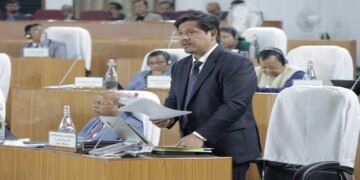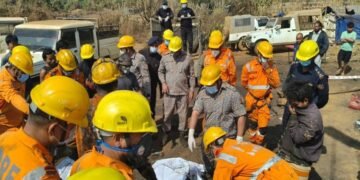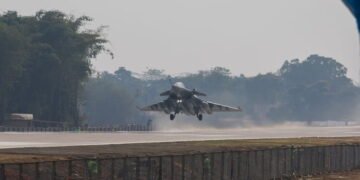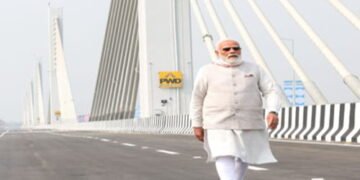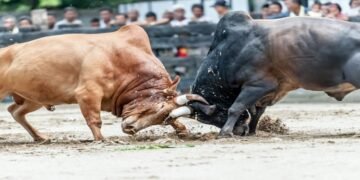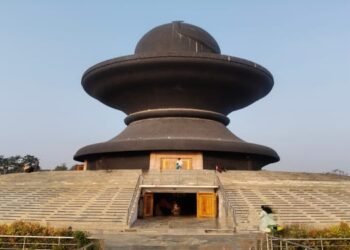New Delhi, Mar 19 : As The 5.30 am execution inching closer, three of the four convicts in the Nirbhaya gang-rape and murder case had approached the Delhi High Court for a last minute reprieve, but drew a blank.
The judges dismissed the petition, which drew their wrath. “There is no annexure, no memo of parties, there is nothing in this matter, no affidavits, nothing. Do you have the permission to file this petition?” Justice Manmohan said.
Responding to the judge, advocate AP Singh, who was representing the petitioners, said making photocopies was not possible due to coronavirus. “See how open the courts are. You have done three courts today. You can’t say things are not accessible. We are here at 10 pm listening to you,” the judge responded.
Akshay Kumar Singh, Pawan Gupta and Vinay Sharma moved to the higher court after the trial court in Delhi dismissed the petition of for a freeze on the execution early this afternoon. The court said they have exhausted all legal options. All three had filed another series of petitions in the Supreme Court, which also got dismissed today.
The execution date of tomorrow was fixed after repeated cancellations as the convicts tried every legal avenue to buy time. Two days ago, three of the four convicts had filed petitions asking for a freeze on the execution.
It will be carried out as per the guidelines prescribed under the Delhi Prison Rules, 2018.
Tihar Jail Additional Inspector General Raj Kumar said that as shown in movies, no food is offered to the convicts or last wish asked for on the day of the execution.
As per the prison rules, on the day of the execution, the four prisoners sentenced to death will be first marched to the scaffold with their hands pinioned behind their back.
A cotton cap with a flap will then be put on their face just before they enter the gallows enclosures. The Jail Superintendent, District Magistrate and Medical Officer will also be present there.
“The prisoner should not be allowed to see the gallows. The prisoner shall now mount the scaffold and shall be placed directly under the beam to which the rope is attached. The prisoner shall than be made over to the executioner,” as per the prison rules.
The executioner will next strap their legs tightly together and adjust the rope tightly round their neck. “The Superintendent shall give a signal, on seeing which the executioner shall push the lever to release the trap-door,” according to the rules.
After the execution, bodies of the four men will remain suspended for half an hour before being taken down or until the Resident Medical Officer certifies that their “life is extinct”.
The body of executed convicts will then be disposed of according to the requirements of the religion to which they belonged.
According to the rules, a municipal hearse or ambulance would be used to take the bodies to the cremation ground with “solemnity”.
“If the executed prisoner’s relatives make a written application for performing the last rites, the government may, allow such request, provided that the relatives give an undertaking that they will not make a public demonstration of the cremation.”
Satendra Kumar Sharma, legal expert and senior criminal lawyer at Tis Hazari court, said: “The four Nirbhaya convicts have been sentenced to death by the courts of the country.
Nevertheless, these deaths will be considered as ‘custodial deaths’ from the perspective of Indian law.”
Dr L.C. Gupta, forensic science expert, told IANS: “Following changes in the CrPC, it will be the responsibility of the Metropolitan Magistrate to send the bodies of the killers of Nirbhaya to the post-mortem house. The doctor present will legally declare the convicts ‘dead’ in writing. After that, the bodies of the four will be taken over by the Metropolitan Magistrate (MM) present on the spot. Only the MM will fill the ‘panchnama’ of the four bodies. After that, it will also be the responsibility of MM to deliver the sealed bodies to the post-mortem panel.”
“During the post-mortem, the photography and videography of the entire process will be done. A copy of the four post-mortem reports will be given to the MM, the panel’s forensic science experts and the National Human Rights Commission,” Gupta said.
According to senior advocate Shailendra: “The Delhi Police will be responsible for the order of MM on completion of the post-mortem process including for the legal delivery of the dead bodies to their concerned families.”
( With IANS inputs)


